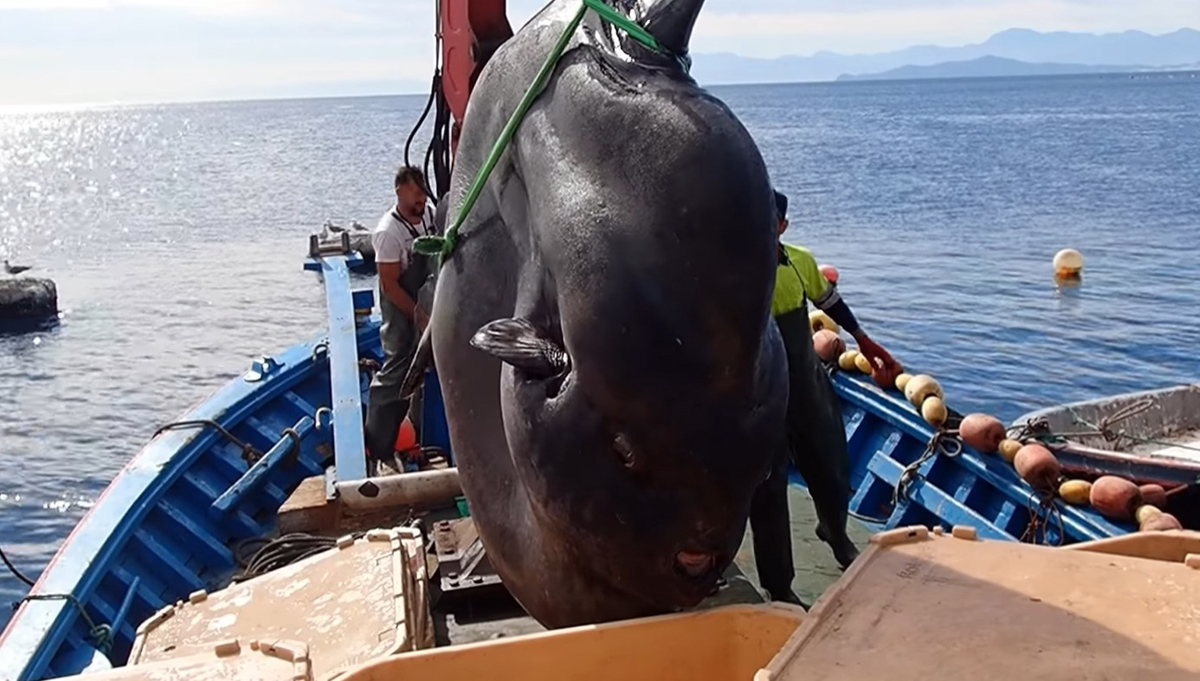Officials in Spain earlier this month were able to rescue a massive 4,000-pound sunfish that had been caught in a fisherman’s net, the University of Seville says.

According to Reuters, the fish was snagged in the net of a tuna fishing boat on Oct. 4 in the Mediterranean Sea off the coast of Ceuta — a Spanish city in northern Africa.

When fishermen noticed the enormous fish was caught in the nets, they first “isolated” it “in an underwater chamber attached to the boat,” Reuters says. When researchers arrived, they used two cranes to lift the enormous fish out of the water.
Researchers with the University of Seville measured the fish to be 10-and-half feet long and 9-and-a-half feet wide. While they estimated that the fish weighed more than 4,400 pounds, they could not officially record its weight.

“We tried to put it on the 1,000-kg (2,204.6-lb) scale, but it was too heavy. It would’ve broken it,” Enrique Ostale, the head of the university’s marine biology lab in Ceuta, told Reuters.
After measuring the fish, researchers quickly took photographs and DNA samples. They then returned the fish to the water.
“I was stunned. We’d read about such individuals … but never thought we’d actually touch one,” Ostale told Reuters.
According to the National Parks Service, the ocean sunfish is the world’s largest bony fish and can reach a maximum weight of 5,000 pounds. They’re found all around the world but prefer waters warmer than 54 degrees.

Worldwide, the population of the ocean sunfish is on the decline. The International Union for the Conservation of Nature has listed the species as “vulnerable” or a few steps above “endangered.”
